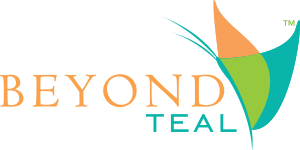Your beliefs become your thoughts, 
Your thoughts become your words,
Your words become your actions,
Your actions become your habits,
Your habits become your values,
Your values become your destiny.
--Mahatma Ghandi
These are interesting times, we live in. The validity of science along with the assertions of alternative facts, fake news and vociferous name-calling are common currents in the daily flow of information. Whatever color your political stripes may be — anger, accusations, and regular doses of flagrant self-righteousness are abundant across the citizenry.
The rawness of emotions feels a little disorienting, doesn’t it? Like somehow, we’ve all been transported into a strange, new realm. It should feel disorienting. We’re living a script right out of science fiction.
Star Trek to be specific.
Aired in 1968, the episode is called Day of the Dove. Both humans (our fearless crew aboard the U.S.S. Enterprise) and the Klingons (the perennial arch-nemesis) are lured to a planet by a formless, alien entity that feeds on hatred and anger. The alien plays on the natural tensions between humans and Klingons to create assumptions, misinterpretations, and alternative realities (no, really, I’m not making this up) to fuel animosity, increase friction and negative emotions. The energy created in this environment is the food source. As hatred grows deeper, the alien grows stronger thus increasing its ability to perpetuate the negative emotional feedback.
How did the humans and Klingons figure out they were being played? With logic. Commander Spock, with his ability to remove emotion from his assessments, figures out the alien is the catalyst for the destructive and extreme emotions. Captain Kirk trusts the advice of his science-based, data-driven, analytical Second-in-Command.
What did they do about it? Kirk urged the Klingon leader to make a choice. Either accept the misery of fighting for a thousand lifetimes or acknowledge that such a choice is destructive, torturous, and above all, pointless. The Klingon leader agrees with Kirk and together they urge their respective crews to focus on moments of joviality and to find laughter…together. Deprived of its toxic energy food source, the alien entity is defeated.
Charting the Course
This is not the first time Star Trek has predicted the future. If you’ve remotely paid attention to American culture you will have noticed a trend. Gene Roddenberry’s Star Trek has always boldly gone where no one has gone before. And fortunately for us, our society has eagerly followed.
Technology
Those glorious space-y, super cool gadgets. And who hasn’t ever dreamed of being instantly beamed away? Many of the original Star Trek devices have become part of our daily lives.
- The Universal Translator. This mechanism instantly translates an alien language into your own. Today we have Google Translate and dedicated apps that translate your spoken words into another language.
- Artificial Intelligence. It seemed so futuristic when a crew member would just ask a question or put in a request out loud and the computer would respond both verbally and fulfilling the request … exactly like our Siri, Ask Google, Alexa, and the internet of things.
- Tablet Computers. Is an explanation even necessary?
Cloaking devices, replicators, laser beams, virtual reality…the list goes on. But it’s worth noting that in one case the opposite is also true. The phrase “to boldly go where no one has gone before” is purportedly inspired from a secret 1958 NASA promotional leaflet that was eventually made available to the public by Eisenhower.
Culture
From its inception, Star Trek redefined an acceptable cultural identity. Look no further than the bridge of the U.S.S. Enterprise.
The Star Trek series was launched in 1966 during the height of the Cold War, deep racial tensions, and the perception of women as second-class citizens. And let us not forget we were facing our moral deficiency of having created Japanese internment camps.
The U.S.S. Enterprise broadcasted a vision of the future with a leadership team including Uhura, an African-American woman, Sulu, an Asian, Chekov, a Russian, and Spock, a Vulcan alien. Say what you want about the campy costumes and sets but this team represented the ability for humanity to work together in respect. Fortunately, our society has (mostly) followed suit.
Changing the News Today
And now, we are living the reality the political theater that Star Trek unknowingly prophesied nearly 50 years ago.
But this prediction is different. Instead of forging a path to a brighter more inclusive, knowledgeable culture it demonstrates the stark realities of leading with angry ideology.
The government we have created is this alien; playing on vulnerabilities and concocting alternative facts to encourage our fear and anger and thus fuel greater grudges and negativity. It grows stronger as our indignation and rage against our perceived “other” increases.
How can we turn the tides of today’s conversation to love, joviality and moments of shared, mutually beneficial accomplishment? How can we make the goal of existence about a shared purpose and goodness for the world?
That is the question of Teal. It’s also the growing world of Teal organizations – organizations filled with a sense of purpose, wholeness, and self-leadership. That internal strength and calmness bolsters the mind against negativity and animosity. For organizations, it fortifies staff and changes the worldview to always see opportunity and strengths.
Think of Teal as a strategy that helps you stand up and live for your principles rather than defining yourself by what you’re against. It’s an ever-changing process but one that allows you find more moments of calm, contentment, and acceptance.
Your beliefs are your destiny. Your actions define you. What do you believe you should do about it?
# # #
Discover how Teal organizations align their profits, culture and strategies for a vibrant, thriving and sustainable organization. Join Bruce Peters for a presentation on Profit, Culture & Strategy. Learn more...
Is your organization implementing any Teal strategies and practices? Take the Teal Organizational Readiness Assessment and find out!
Bruce Peters has spent the last 15 years living his own “Third Act.” Based on his personal experience and in working as a guide for hundreds of leaders, he has designed a unique process for getting beyond where you are and into the creation of your own Third Act for you or your organization. It starts with the question of what is the difference you want to make? Learn more at www.beyondteal.com.


